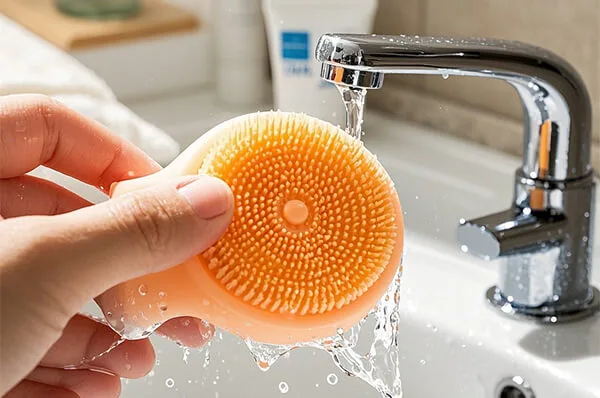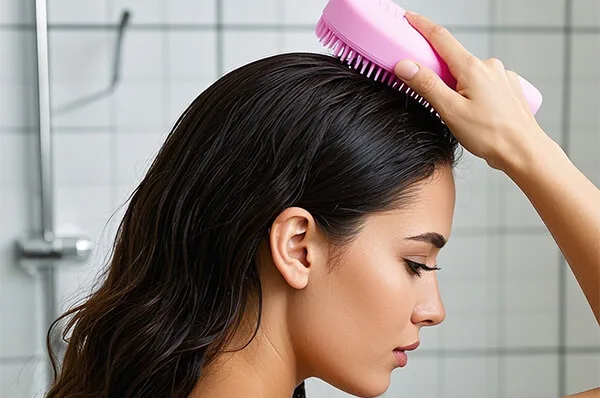- Have any questions?
- +86 19574832024
- admin@beaut-lohas.com
In the realm of personal hygiene and skincare, the choice between a silicone body scrubber and a loofah has become a topic of debate. Both have their own set of advantages and disadvantages, but which one truly comes out on top?
Let’s start with the silicone body scrubber. One of the primary advantages of silicone scrubbers is their durability. They are made from a flexible yet sturdy material that can withstand repeated use without falling apart easily. Unlike loofahs, which can start to deteriorate and develop mold over time, silicone scrubbers are less prone to such issues. This makes them a more hygienic option as they are less likely to harbor bacteria.
Silicone is also known for its safety. It is a non-toxic material that is generally considered safe for contact with the skin. It does not contain harmful chemicals that could potentially cause adverse reactions. This is especially important for those with sensitive skin or allergies. Silicone body scrubbers are often hypoallergenic, reducing the risk of skin irritation or allergic responses.
Silicone body scrubbers are also gentle on the skin. Their soft texture ensures that they don’t cause excessive abrasion, making them suitable for people with sensitive skin. They can effectively remove dead skin cells without irritating the skin, leaving it smooth and refreshed. Additionally, silicone scrubbers are often designed with different textures on their surfaces, allowing for a customizable level of exfoliation. You can choose a side with a softer texture for gentle cleansing or a rougher side for a more intense scrub.
On the other hand, loofahs have been a traditional bathing accessory for many years. They are inexpensive and widely available. Loofahs provide a more vigorous scrubbing action, which can be beneficial for those who prefer a deeper clean. The natural texture of loofah can help to slough off stubborn dirt and dead skin cells more effectively than some silicone scrubbers.
However, loofahs have their drawbacks. As mentioned earlier, they can become a breeding ground for bacteria and mold if not dried properly after each use. This can pose a risk to skin health, especially for people with compromised immune systems or skin conditions. Moreover, loofahs can be rough on the skin, potentially causing micro-tears and irritation, especially if used too vigorously.
In conclusion, whether a silicone body scrubber is better than a loofah depends on individual preferences and skin types. If you have sensitive skin or are looking for a more hygienic option that lasts longer and is made from a safe material, a silicone scrubber might be the way to go. On the other hand, if you prefer a stronger scrubbing action and don’t mind the potential hygiene issues, a loofah could still be a viable choice. Ultimately, it’s important to consider your own needs and make an informed decision to ensure the best possible skincare routine.



